Structural and Functional Loss in Restored Wetland Ecosystems
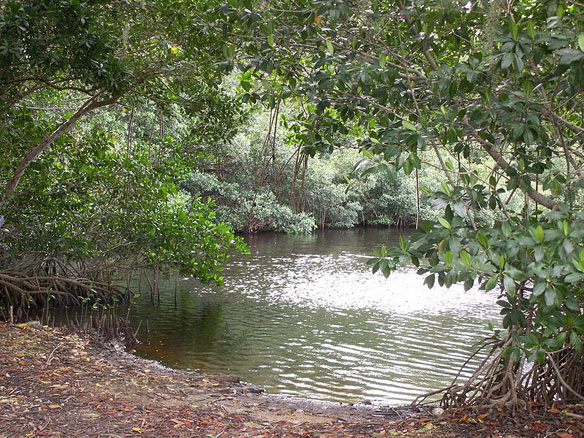
Wetlands are among the most productive and valuable ecosystems in the world, but because of human activities, over half of the wetland ecosystems existing in North America, Europe, Australia, and China in the early 20th century have been lost. Wetland restoration is a billion-dollar-a-year industry, that aims to create ecosystems similar to those that disappeared, but a new analysis of such projects shows that restored wetlands seldom reach the quality of a natural wetland.
Mangrove: The Root Of The Matter

In the aftermath of the 2004 tsunami disaster that struck Indonesia, India, Thailand and Sri Lanka, scientists from the U.S. Geological Survey explored how these unique trees hemming the shorelines, which make up valuable forest ecosystems called mangroves, help safeguard lives, property and beaches during hurricanes, tsunamis and floods.
Mining to blame for islands to sink beneath waves
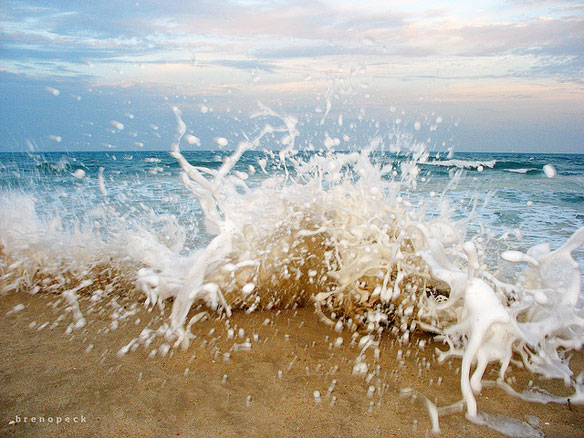
Two small islands in South Asia’s first marine biosphere reserve, in the Gulf of Mannar, between India and Sri Lanka, did sink into the sea primarily as a result of coral reef mining, experts said. The corals were mined for use as a binding material in the construction industry, as they were rich in calcium carbonate.
Mangrove Reforestation In Belize
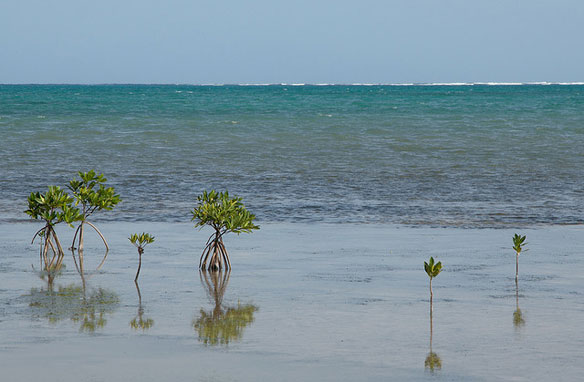
CORAL’s (Coral Reef Alliance) mangrove reforestation project in San Pedro, Belize is thriving. Recent monitoring reports reveal that ninety percent of the mangroves planted by the local community have survived.
Rowley Shoals, Timor Sea
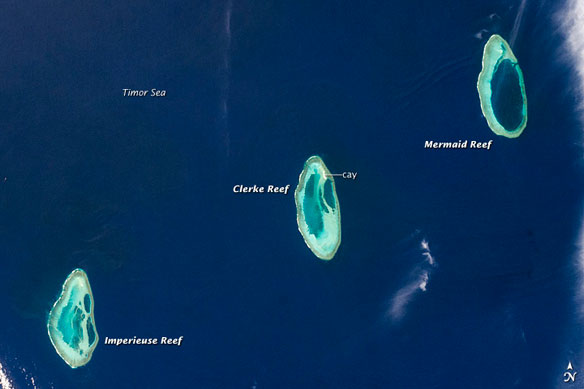
Located off the northwestern Australia coastline, the coral reef atolls known as Rowley Shoals, is of impressive biodiversity with 233 coral species and 688 fish species.
Coastal Vegetation Could Blunt Tsunami’s Deadly Impact

A study estimates that the death toll of the devastating 2004 tsunami along Indonesia’s West Aceh coast would have been smaller had there been enough coastal vegetation to dull the blow and shield the coastal settlements from the shoreline.
Stressors To Florida Keys Marine Ecosystem, A Study
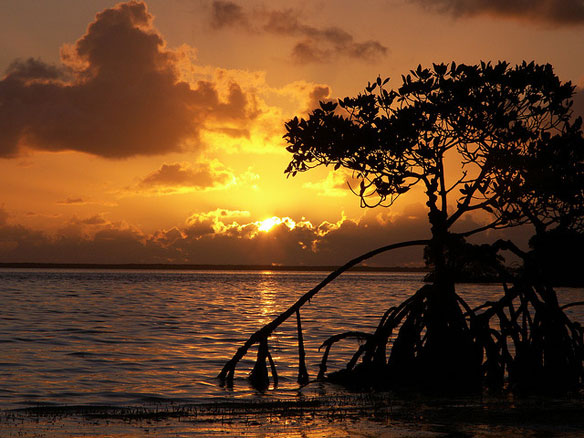
NOAA scientists have found that pressure from increasing coastal populations, ship and boat groundings, marine debris, poaching, and climate change are critically threatening the health of the Florida Keys ecosystem. Many historically abundant marine resources such as green sea turtles and coral habitat continue to be at risk with low rates of recovery.
Hawaii’s coral reef ecosystems worth $33.57 billion per year
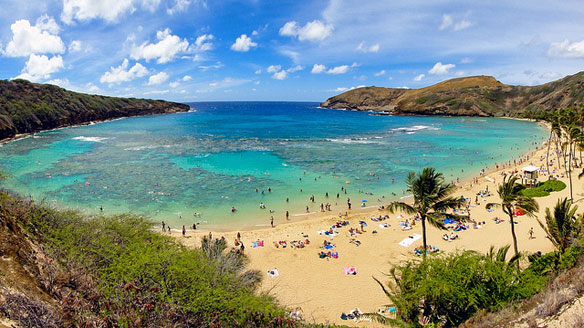
A peer-reviewed study commissioned by NOAA shows the American people assign an estimated total economic value of $33.57 billion for the coral reefs of the main Hawaiian Islands.
Study Uncovers a Predictable Sequence Toward Coral Reef Collapse
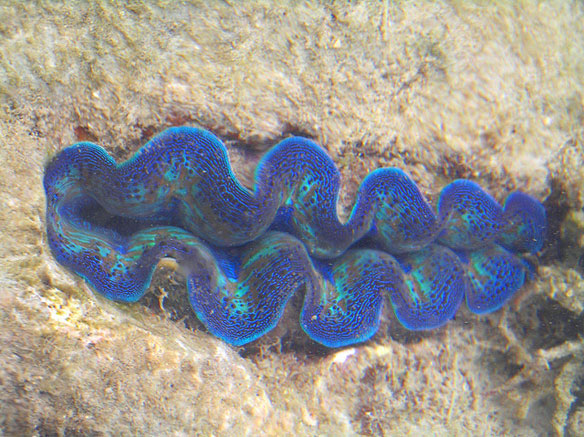
Using data from coral reef systems across the western Indian Ocean, researchers identified how overfishing creates a series of at least eight big changes on reefs that precipitate a final collapse. This information can help assessing the health of a reef and tell when to restrict fishing in order to avoid a collapse of the ecosystem and fishery.
